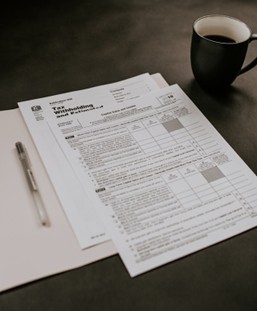Starting a tax business can be a rewarding venture for individuals who have taken the time to learn how to prepare taxes and who possess a solid understanding of finance, accounting, and tax laws. However, like any business in the financial services industry, there are specific licenses, certifications, and legal requirements you must meet to offer tax services legally to clients. The following article explores the essential credentials and licensing needed to get started, including federal and state-level requirements, professional certifications, and practical tips for navigating the regulatory landscape.
Understanding the Legal Requirements for Operating a Tax Business
Before offering tax preparation services to clients, it is crucial to understand both federal and state regulations that govern tax professionals. These requirements ensure that tax preparers operate ethically and are qualified to handle sensitive financial information.
Obtain a Preparer Tax Identification Number (PTIN)
One of the first steps to starting a tax business is obtaining a Preparer Tax Identification Number (PTIN) from the Internal Revenue Service (IRS). A PTIN is a unique identifier required by the IRS for anyone who prepares federal tax returns for compensation. This number must be renewed annually, and without it, you cannot legally prepare tax returns for clients.
The application for a PTIN is completed online through the IRS website, and the process is relatively straightforward. Tax professionals must provide their personal information, including Social Security number, and may be subject to a background check. The PTIN application costs around $35.95 per year, and it is essential for maintaining compliance with IRS regulations.
Become an Enrolled Agent (EA)
While obtaining a PTIN allows you to prepare taxes, many tax preparers opt to become an Enrolled Agent (EA) to enhance their qualifications and credibility. An EA is a tax professional who is licensed by the IRS to represent taxpayers before the agency. This credential provides significant professional advantages, as it allows you to offer comprehensive services, including tax preparation, audits, and appeals.
To become an EA, you must pass the IRS Special Enrollment Examination (SEE), which tests your knowledge of tax laws and regulations. The examination consists of three parts: individual tax, business tax, and representation, practices, and procedures. Once you pass the SEE, you can apply for enrollment with the IRS, after which you will receive an EA designation.
Earning the EA credential demonstrates a high level of expertise in tax law and gives your tax business an edge, as clients tend to trust tax professionals who hold recognized qualifications. EAs must complete continuing education (CE) courses every three years to maintain their license.

Certified Public Accountant (CPA)
Another highly respected certification for tax professionals is the Certified Public Accountant (CPA) designation. Unlike EAs, CPAs are licensed by state boards of accountancy, and their expertise extends beyond tax preparation to include auditing, financial reporting, and accounting. However, many CPAs specialize in tax services and can provide in-depth tax advice and planning for individuals and businesses.
To become a CPA, you must pass the Uniform CPA Examination, which covers a wide range of topics, including tax law, business law, auditing, and financial accounting. Additionally, you must meet the specific educational and experience requirements set by your state board of accountancy. Once you pass the CPA exam and meet the experience requirements, you can apply for your CPA license.
CPAs are required to complete continuing professional education (CPE) courses annually to keep their licenses active. If you plan to offer tax services as a CPA, it’s important to specialize in tax preparation and planning by gaining additional expertise and certifications related to taxes.
State Licensing Requirements
In addition to federal credentials, some states have additional licensing requirements for tax preparers. While many states do not require a separate state license to operate as a tax preparer, it is important to check your state’s specific regulations. Some states, such as California, Oregon, and New York, require tax preparers to register with the state or obtain a state-issued license before offering services.
For instance, in California, tax preparers must register with the California Tax Education Council (CTEC) and complete specific continuing education courses annually. In New York, tax preparers must register with the New York State Department of Taxation and Finance and may need to pass a qualifying exam.
Be sure to visit your state’s tax department or regulatory agency website to understand the requirements for tax preparers in your area. These state requirements are often designed to protect consumers and ensure that tax professionals are up-to-date on state-specific tax laws.

Other Business Considerations
In addition to obtaining the necessary licenses and certifications, you will need to address other business considerations when starting a tax business. These include:
Register Your Business
Decide on a legal structure for your business. Most tax businesses operate as sole proprietorships, partnerships, limited liability companies (LLCs), or corporations. Each structure has different legal and tax implications, so it’s important to consult with a business attorney or accountant to determine the best option for your situation.
Obtain a Business License
In most cases, you will need a local business license to operate legally. The requirements vary by city and county, so check with your local government office to ensure that your business is properly licensed.
Consider E&O Insurance
While not required, professional liability insurance, also known as Errors and Omissions (E&O) insurance, is highly recommended for tax professionals. This type of insurance protects you from legal claims related to mistakes made during tax preparation or advisory services.
Conclusion
Starting a tax business requires a combination of formal education, professional certifications, and legal compliance. At a minimum, obtaining a PTIN from the IRS is essential for tax preparers. However, many successful tax businesses also obtain additional credentials, such as the Enrolled Agent (EA) or Certified Public Accountant (CPA) designation, to provide clients with a higher level of service and expertise.
State-specific licensing requirements must also be considered, as each state has different rules governing tax preparers. By adhering to federal and state regulations, obtaining the necessary credentials, and staying current with tax law changes, you can set your tax business up for success while building trust with your clients.

